Child labour in vanilla in Uganda
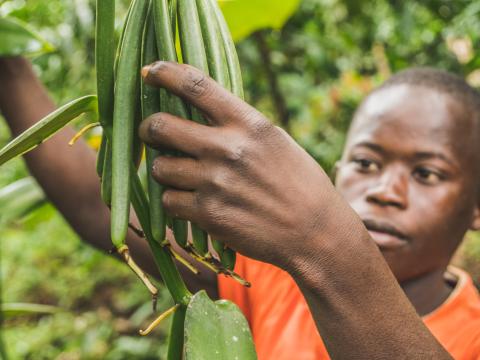
Not far from the capital of Kampala in Uganda, vanilla flourishes around the city of Mukono. However, the high value and delicate nature of the crop has its own hidden costs, as the sons of one farmer in Ngogwe know all too well.
Vanilla is a delicate and valuable crop, mainly produced in Madagascar, Uganda, Papua New Guinea, Indonesia as well as native Mexico. In Mexico, vanilla is pollinated by native bees, but outside of Mexico, pollination is a delicate and time-consuming task that must be done by hand.
Children who aren’t in school spend six to seven hours a day in the tedious work of pollinating every orchid; they also help with the triage and drying process for vanilla pods. In Madagascar, nearly one-third of the entire vanilla workforce is estimated to be aged 12 to 17, with approximately 20,000 child labourers engaged in dangerous or heavy work on vanilla farms
Vanilla’s year-long harvest cycle means that although the crop is very valuable, families are often indebted by the time a harvest comes, locking families into a boom and bust cycle.
The recent spike in vanilla prices has also led to thefts and attacks, with farmers and children responding by sleeping in the plots to try and protect their crops. In Uganda, the government has been supplying armed guards for some farmers.
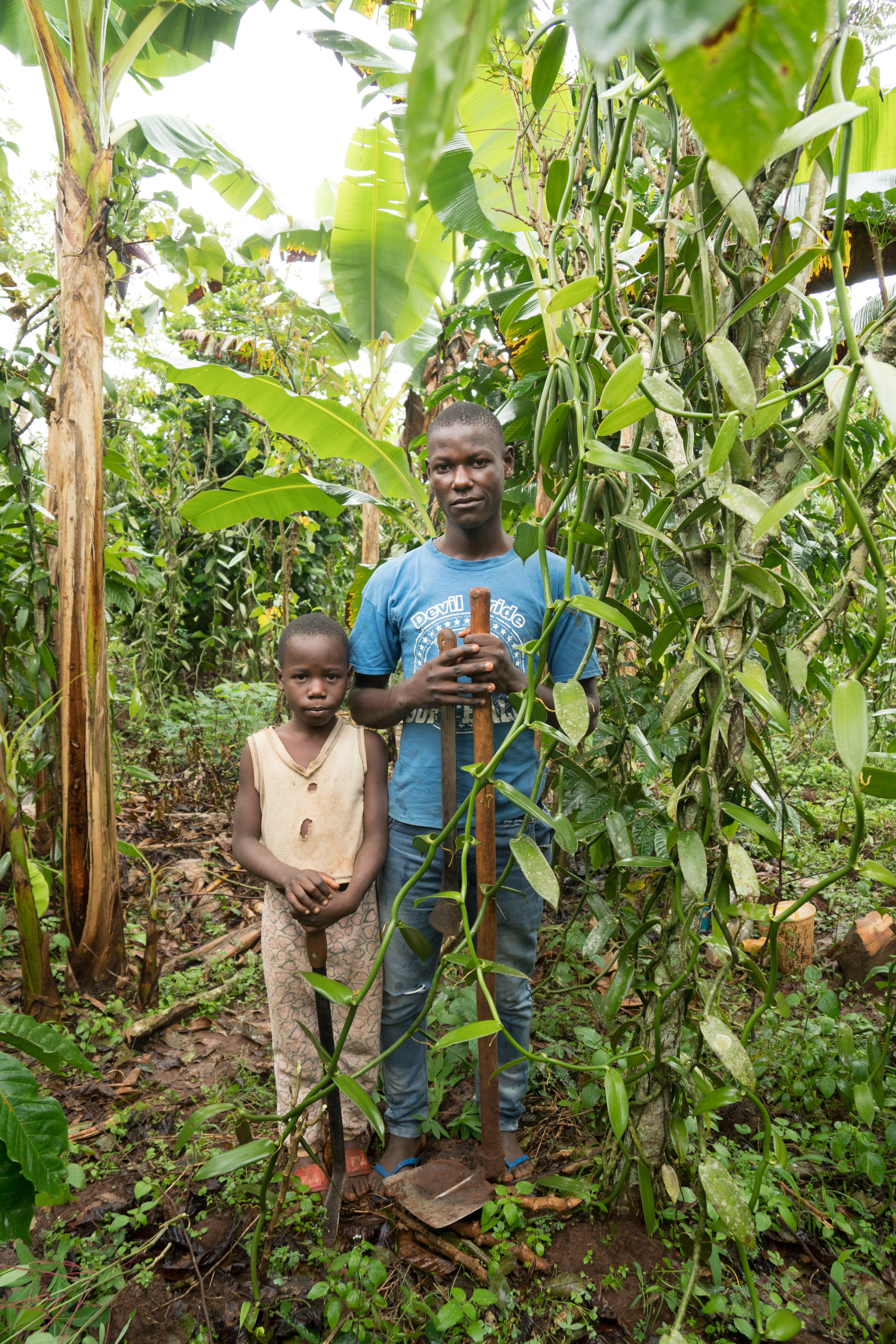
Peter, 17, and Rahmad 8 stand near the vanilla vines. Peter started working when he was 8, and with all the interruptions to his schooling, it took him until he was 15 to finish primary school. Rahmad idolises his older brother and started working on vanilla when he was 5.
“When Vanilla has reached its maturity, I go to school three times a week.” Says Peter, “Every flower that takes long to get harvested dies.”
“Not all of us siblings know how to handle vanilla,” Peter explains. “Most of them are in boarding school. The ones that stay are the ones that have the knowledge.”
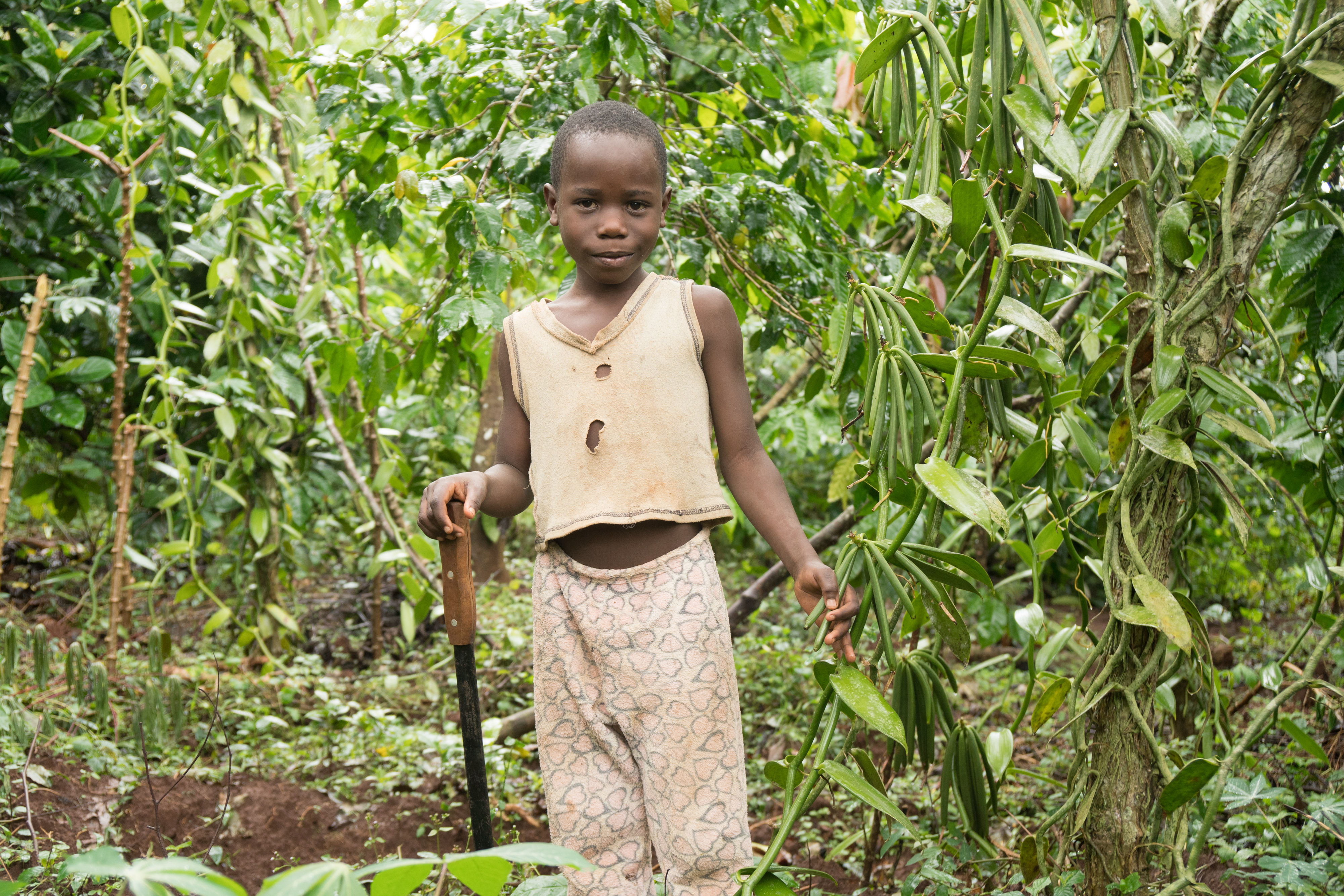
Rahmad, 8, helps cultivate the family vanilla vines. Despite his young age, he’s been working regularly for the past 3 years, and his schooling is often disrupted due to the labour-intensive pollination and harvesting process. However, his father has become more aware of the impact work in vanilla is having on his sons thanks to World Vision child protection training, and is working to make sure Rahmad’s education won’t be impacted in the future like his older brothers.
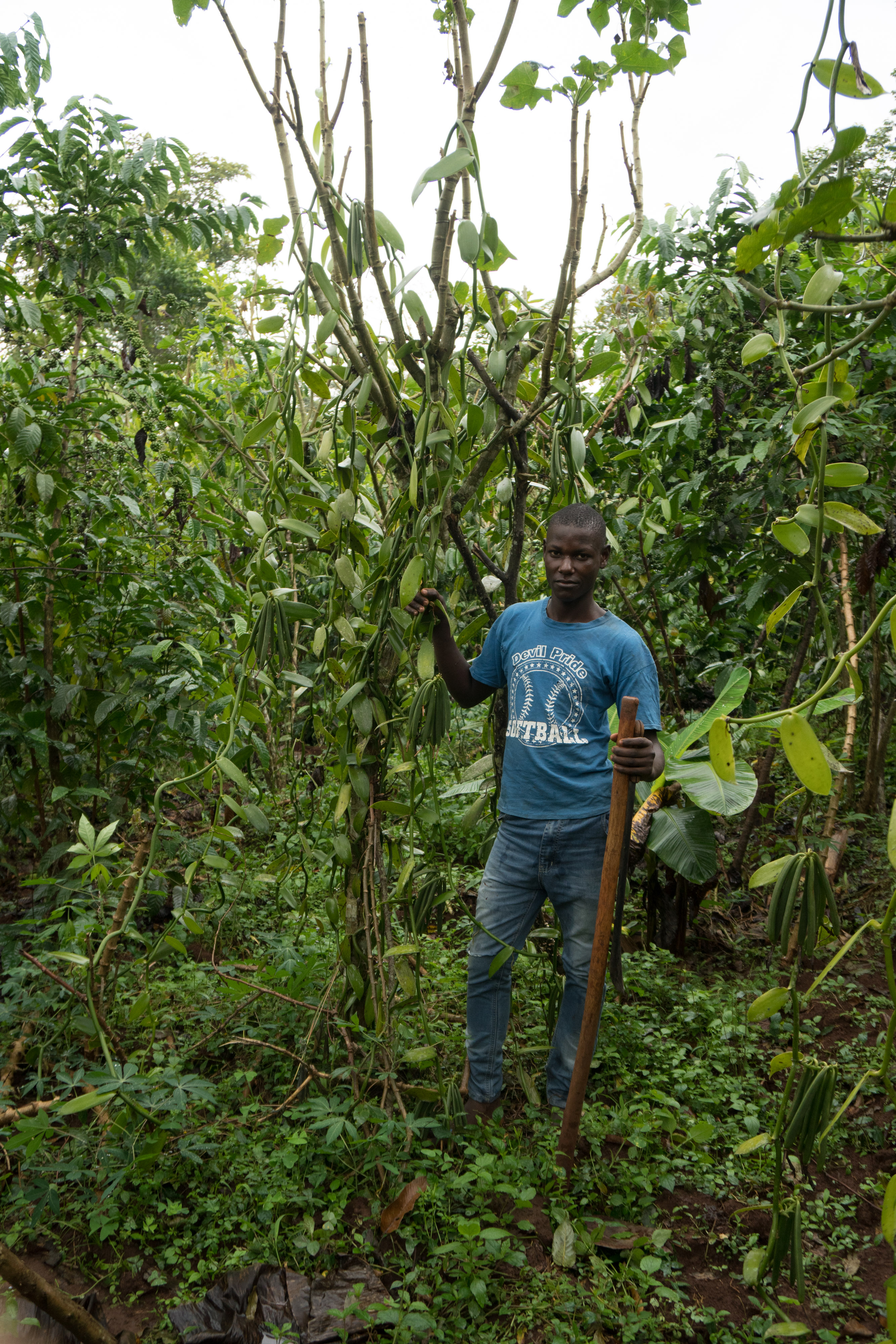
Peter 17 shows the newest vanilla pods on the family vines. He’s been working on his father’s vines since he was 8.
“We have gained from it, we have bought cows, chairs and fixed the house. When Vanilla has reached its maturity, I go to school three times a week because every flower that takes long to get harvested dies.”
“It can take two months, depending. Knowing that in the morning it’s what you will wake up to do: it needs time and perseverance.”
“Not having to go to school so that I stay home is painful because I love both of them, but I have to prioritise. I can’t refuse to make time for vanilla if it’s time to harvest, because otherwise I would have put in a lot of time and it would be a loss.”
“During school, some days you will miss class because your focus is on vanilla and sometimes, the prices have gone down and yet you had forgone a lot.”
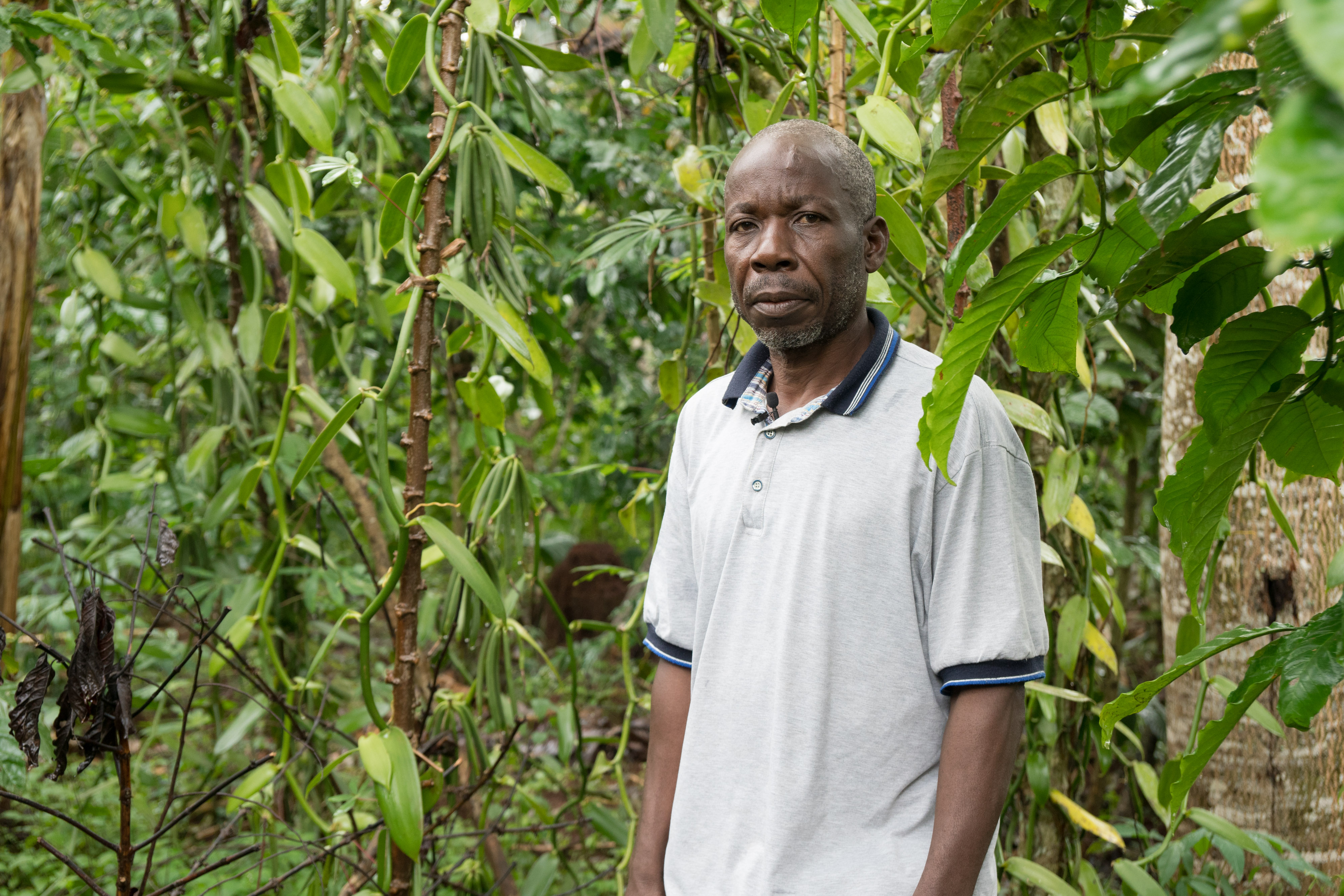
Peter, a vanilla farmer in Ngogwe, Uganda stands amongst his vines.
The boys’ father, Peter Senior, has taken note of the effect vanilla has had on his sons’ educations.
“Vanilla has enabled me to take my other children to school,” he says. Peter and Rahmad have stayed because he trusts them to handle the delicate crop without damaging it. But the time has come when he’s ready to send them to school too.
“I have been working on it and I am making sure that the children take school seriously without being disturbed.” Peter Senior tells us. “To replace their labour, I have made sure I have people who can help me and who understand this line of work.”
“This garden hadn’t yet started sprouting enough for me to secure a loan for the children to go to school. But since it’s now showing signs, the labour will now stop and the children will start going. World Vision advises us to work hard so that we send our children to school and we are starting to realize that it’s a good thing. Education for the children is a very important thing and whenever it comes, World Vision talks to me about it.”
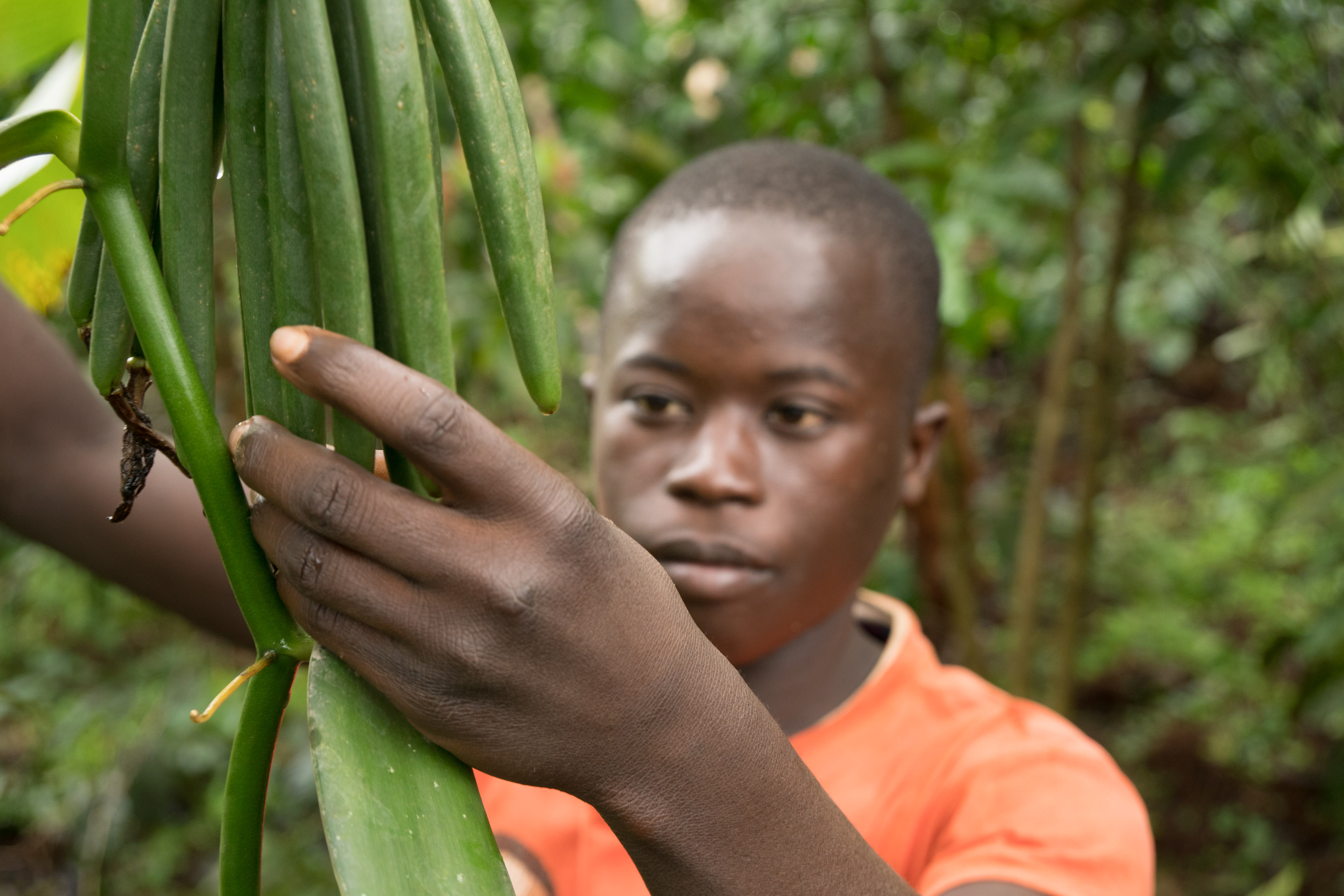
Christoph, 15, has been working on vanilla since he was six. He finished primary school last year but has now stopped working until he earns enough money to go do more studying.
“I make some profits when the vanilla is harvested and sold. It helps around the house and I get to buy things like clothes.”
I used to see my father when he was digging vanilla and he was making money from it to support us.
So after watching him, I started too. I used to walk with him to the garden. I dug a hole like I would for a matooke plant. Then I made a deeper hole using a spear, put a seedling there, and then covered the hole with mulch from the neighbouring matooke plant. After some good time, I passed by where I had planted the vanilla and I found that it had sprouted with all its leaves. I was around six years old.
Vanilla takes a long time to cultivate and requires a lot of skills. If you haven’t followed the right procedures, you won’t get a good harvest.
I want people to come here and see how hardworking we are. Vanilla depends on how you plant it, if it’s in the shadows, it takes long to mature. it needs space to get some sunlight.”
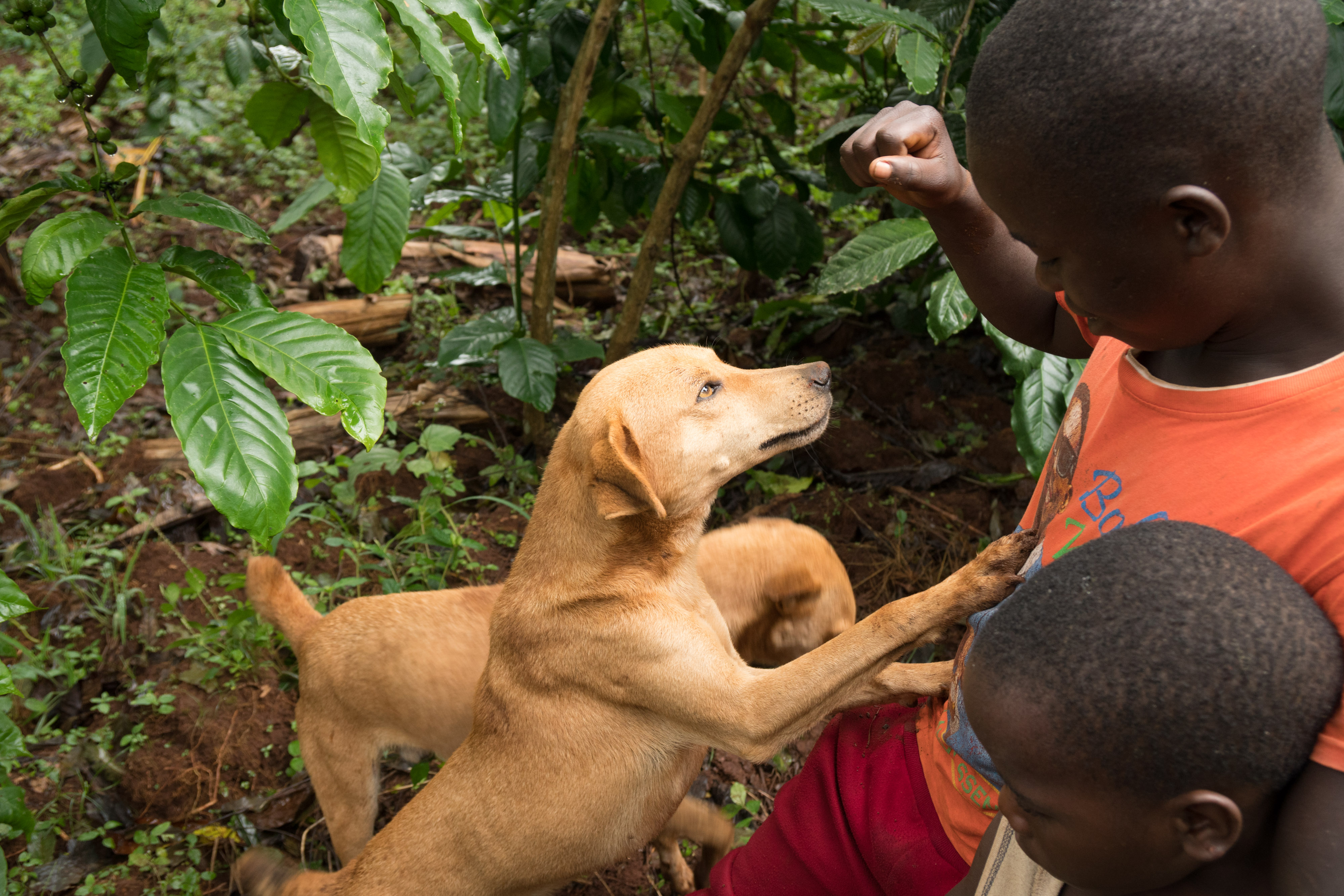
The boys play with one of the family dogs in the vanilla vines.
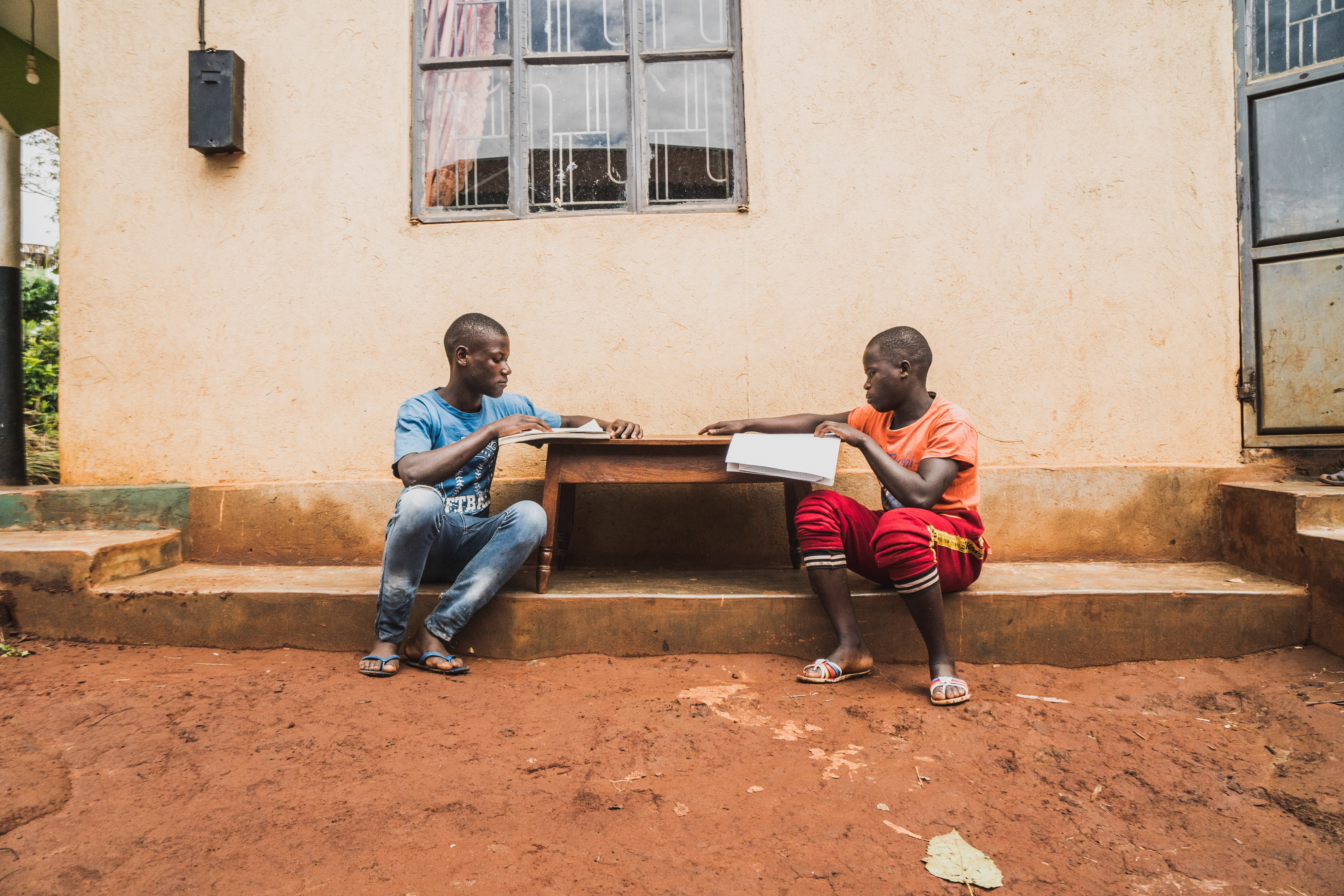
Christoph and Peter pull out their schoolbooks to study. Both boys have been splitting their time between school and vanilla for the past nine years, and only recently finished primary school. Neither has yet managed to begin secondary education, but their father is determined to find trustworthy help to replace the boys’ labour so their educations’ will no longer be impacted, thanks to World Vision messages in the community.